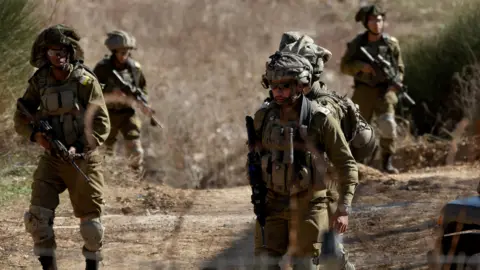 EPA
EPAIsrael has confirmed it is carrying out air strikes on Syria to target suspected chemical weapons and missile sites.
Gideon Saar, the country’s foreign minister, said this was to stop weapons falling “into the hands of extremists”.
Media reports suggest there have been dozens of Israeli air strikes in the past two days, including on a site in Damascus said to have been used for rocket development by Iranian scientists.
Also on Monday, the Israeli military released photos of its troops who crossed from the Israeli-occupied Golan Heights into the demilitarised buffer zone in Syria where UN peacekeepers are based.
It comes a day after Israeli Prime Minister Benjamin Netanyahu announced that the military had temporarily seized control of the so-called Area of Separation, saying the 1974 disengagement agreement with Syria had “collapsed” with the rebel takeover of the country.
The Golan Heights is a rocky plateau about 60km (40 miles) south-west of Damascus.
Israel seized the Golan from Syria in the closing stages of the 1967 Six-Day War and unilaterally annexed it in 1981. The move was not recognised internationally, although the US did so unilaterally in 2019.
Speaking at a news conference on Monday, Saar said the Israel Defense Forces (IDF) was only making “a very limited and temporary step” taken for “security reasons”.
He also claimed that Israel had no interest in meddling in internal Syrian affairs and was concerned only with defending its citizens.
Defence Minister Israel Katz meanwhile said the Israeli military would “destroy heavy strategic weapons” – including missile and air defence systems.
The Syrian Observatory for Human Rights (SOHR), a UK-based monitoring group, said on Monday that the Israeli military had conducted overnight strikes on multiple locations spanning coastal and southern Syria.
“Since the initial hours after the announcement of the fall of the former regime, Israel began launching intensive air strikes, deliberately destroying weapons and ammunitions depots,” it said.
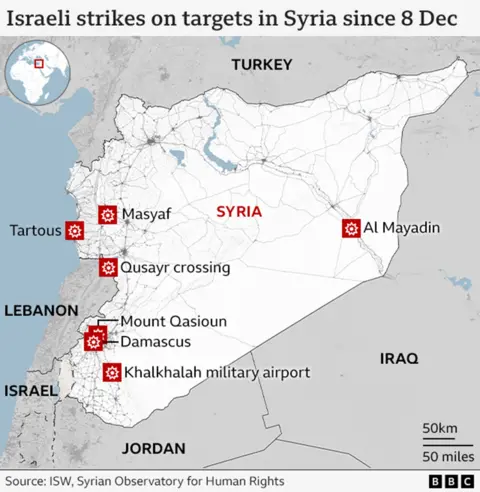
The latest moves by Israel come after Syrian rebel fighters captured the capital, Damascus, and toppled Bashar al-Assad’s regime. He and his father had been in power in the country since 1971.
Forces led by the Islamist opposition group Hayat Tahrir al-Sham (HTS) entered Damascus in the early hours of Sunday, before appearing on state television to declare that Syria was now “free”.
On Sunday, Netanyahu branded the collapse of the Assad regime a “historic day in the Middle East”.
The Assad regime received much support from Hezbollah and Russia in the country’s brutal civil war. With Hezbollah involved in the Israel-Gaza war and cross-border air strikes between Israel and Lebanon, and Russia expending huge resources on its invasion of Ukraine, HTS, along with other rebel groups in Syria, were able to seize on the occasion and were ultimately able to capture large swathes of Syria.
During the 2011 Syrian uprising, Israel made the calculation that Assad, despite being an ally of both Iran and Hezbollah, was a better bet than what might follow his regime.
On Sunday, Netanyahu insisted Israel would “send a hand of peace” to Syrians who wanted to live in peace with Israel.
He said the IDF presence in the buffer zone was a “temporary defensive position until a suitable arrangement is found”.
“If we can establish neighbourly relations and peaceful relations with the new forces emerging in Syria, that’s our desire. But if we do not, we will do whatever it takes to defend the State of Israel and the border of Israel,” he said.
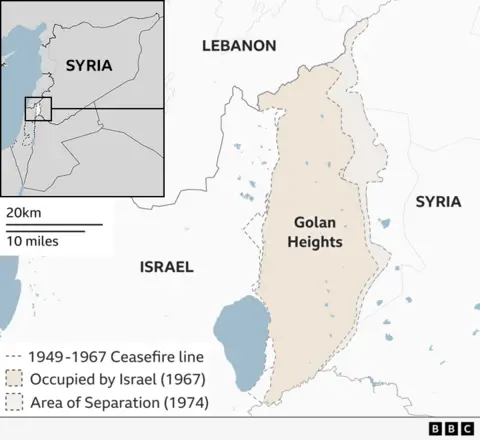
Israel is likely to be more sensitive over the Golan Heights, since HTS leader Abu Mohammed al-Jawlani’s family has roots there. Thousands of Israeli settlers now live in the area alongside about 20,000 Syrians, most of them Druze, who stayed on after it was captured.
Israeli strikes in Syria are nothing new. It has previously acknowledged carrying out hundreds of strikes in recent years on targets in Syria that it says are linked to Iran and allied armed groups such as Hezbollah.
The Israeli strikes in Syria have reportedly been more frequent since the start of the war in Gaza in October 2023, in response to cross-border attacks on northern Israel by Hezbollah and other groups in Lebanon and Syria.
Just last month, the Syrian Observatory for Human Rights (SOHR), a UK-based monitoring group, reported that a set of strikes hit a weapons depot and other locations in and around an area near Palmyra where families of Iran-backed militia fighters were, killing 68 Syrian and foreign fighters.













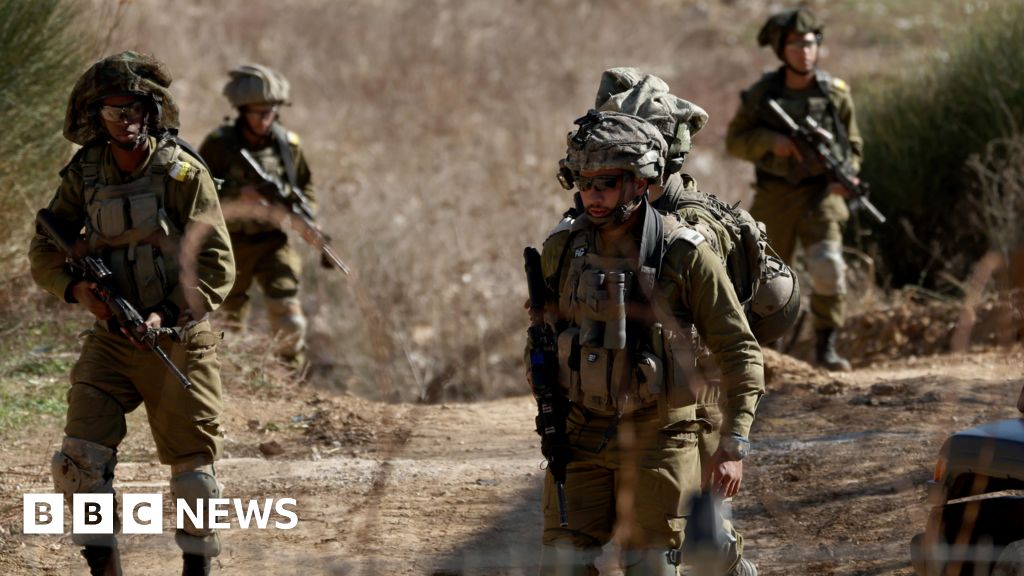

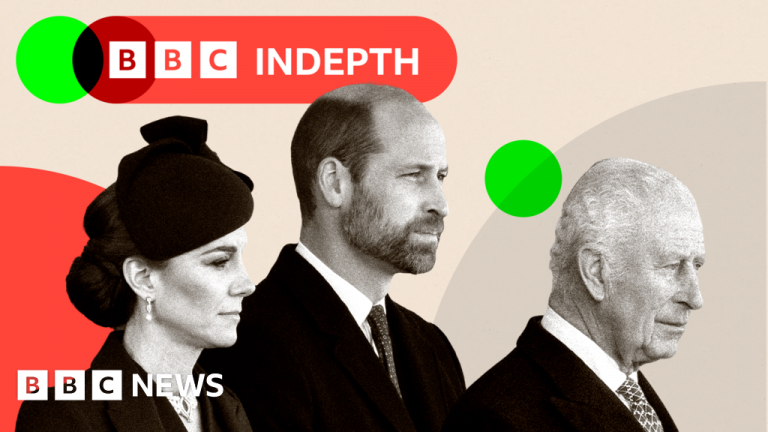



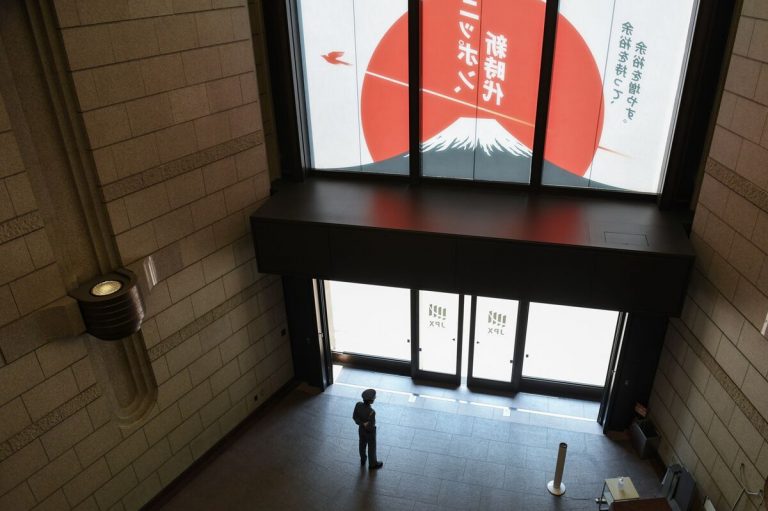





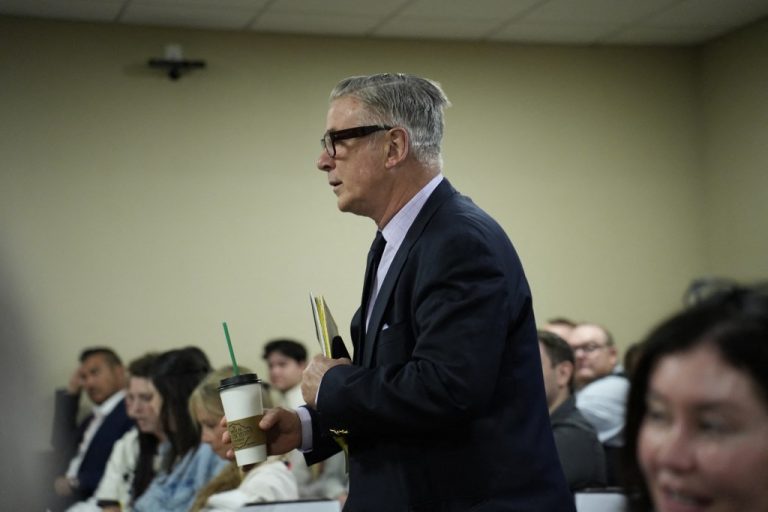
+ There are no comments
Add yours